

There is a common misconception among unmarried couples. It was said that most unmarried couples who are living together in a period of time should be treated the same as those married ones. This is obviously incorrect. For many purposes, it may be possible that law couples should be treated the same way as married couples. This refers to tax fillings and spousal coverage like in the case of a health plan. However, matrimonial property sharing is not applicable for common law spouses. They have a very different footing compared to married couples. Family law legislation is different from place to place. Others may allow sharing of property for common law couples, while others don’t. That is why there is really a need for common law spouses to review the law that applies to them in the area where they plan to live in.
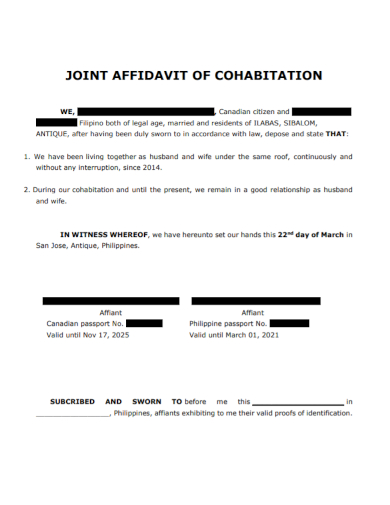
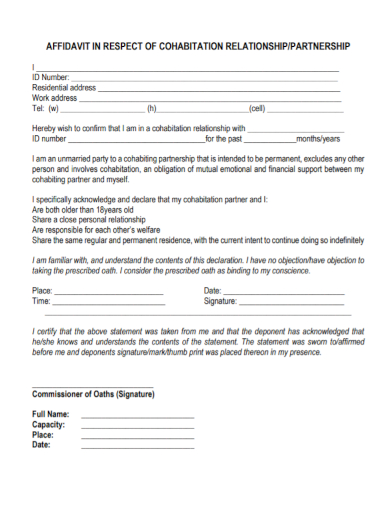
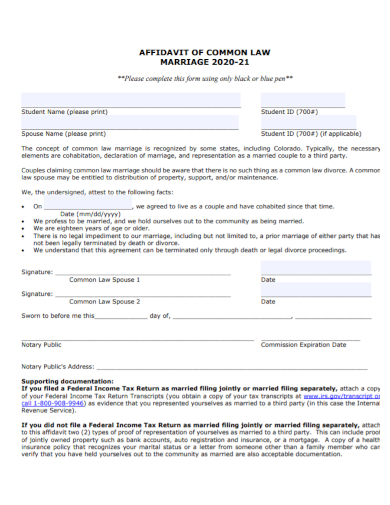
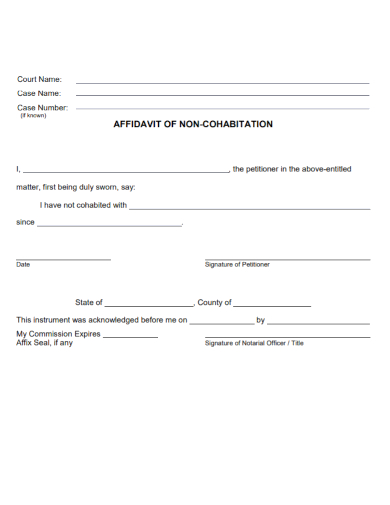
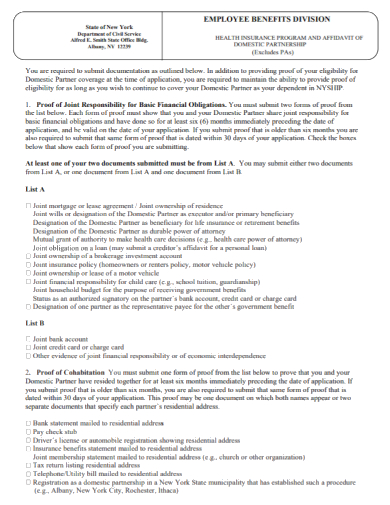
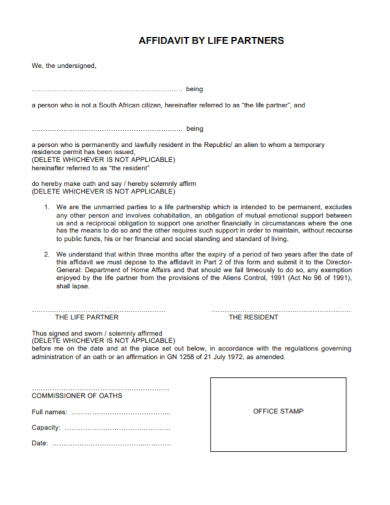
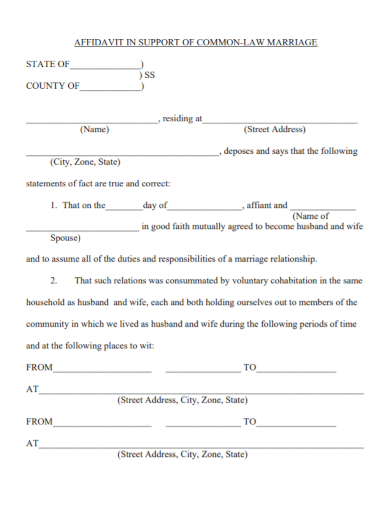
An affidavit of cohabitation is a type of written statement that is under an oath by a couple, composed of a man and a woman, stating that they are living together as husband and wife in not less than five (5) years without having any legal impediment to marry each other. This is in pursuant to article 34 of the Family Code that helps couples make it easier to be cohabited as husband and wife for at least 5 years to get married without having to obtain a marriage license. This is designed to help couples who are old and responsible enough to get married as long as they comply with the requisites to be able to secure a marriage license.
An affidavit of cohabitation is essential for couples who wants to get married without having a marriage license. We all know that the law dispenses in having to comply with the requirement of obtaining a marriage license especially for a man and a woman living together over an unbroken period of at least five (5) years before the date of marriage. This is to be able to avoid exposing the situation that can cause humiliation from cohabitation outside of an invalid marriage.
These information are needed in order to create an affidavit of cohabitation: name and details of both the man and woman living together including their address and nationality and the exact date when the parties have started cohabiting.
1. Property sharing – in many specific areas, only the married spouses are entitled to share properties together. This means that whenever a marriage ends, the spouses will automatically be sharing equally what they have accumulated during their marriage, but with exceptions. The law assumes that spouses should be able to contribute equally to the accumulation of wealth during the marriage. When common law spouses separate, they will have the right to claim the property that was being accumulated in the relationship. The presumption among most of the common law spouses states that they should be keeping what they individually own since they do not have the right to share any type of property.
2. Spousal support – both common law and married couples have spousal support obligation. The only difference is that in the case of common law spouses, they only have spousal support after they cohabit in at least three to five years or if they have a child together.
3. Dying without a will – only married spouses are give the right to share their properties if their spouses die without a will. There is a specific law that provides how a specific property will be divided between the family members if in case someone will die without a will.
For unmarried couples, it is preferred to have a cohabitation agreement signed at an early stage of their relationship or before they live together. It is much better to have these things discussed at the very beginning to make sure that both parties continue the relationship having the same understanding of how they are going to share the finances.
It is essential that an affidavit of cohabitation is prepared by a qualified lawyer to ensure they say what the spouses intend them to say. Those cohabitations that are not prepared by a qualified lawyer can easily be set aside by the court especially if one of the spouse argues that he or she haven’t understood the agreement.
There are a few things to remember. There is a difference in the law implementation between the common law spouses and the married spouses especially in terms of property sharing. If you want to have a successful process in your affidavit of cohabitation, have a lawyer assist you in the process so that both parties can understand the agreement. If you want to read more and view guide samples about the affidavit of cohabitation, you may view some of the cohabitation agreement samples in the article.